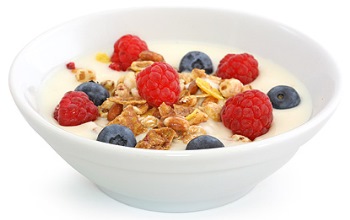0203 397 8891
Open today: 9:00am - 6:00pm

by Maureen Cromey
An Acupuncturist and Chinese Medicine Expert
‘There are no fat people in famines’ (anonymous)
Maintaining a healthy weight depends entirely on lifestyle and it is not a matter of good luck or 'slim genes'. Our basic body shape will be inherited, but the amount of fat we carry beneath our skin as subcutaneous fat and wrapped round our organs as visceral fat is entirely up to us. We control our lifestyle, diet and exercise levels all of which have a profound effect on weight.
Recently I was watching a documentary about weight and problems of obesity. There was much discussion around inherited factors which contribute to weight gain and obesity. Maybe these were the reasons some people were more prone to weight gain whilst others maintained an even healthy weight. Scientific evidence seems unclear on this issue and the film investigated the research that is available.
Identical twins in the 50s were interviewed. One looked his age, paunchy with high blood pressure, the other was as fit as a fiddle, wiry and strong. They started with exactly the same genes and life expectancy. Now aged 53, the slimmer, fitter twin had a much better health profile and far longer life expectancy than his identical twin brother. Why this difference? The slim man had been a cyclist for years, he ate sensibly and enjoyed physical activity. His brother was an overweight business man fond of the good life, who avoided exercise. The difference in their weight and health was due to how each man had chosen to lead his life, and not their original constitution, they barely looked related let alone identical twins.
Later on a medical consultant specialising in the treatment of obesity drily observed that there are no fat people in famines....
So let us take no prisoners. It is an effort to maintain a healthy weight, but it is not impossible and the rewards are tremendous. It’s about habits, mindfulness and common-sense. It gets easier the longer you do it and eventually it becomes a habit.
There are a few golden rules. Let us first look at these.

Dieting is a bad idea; the body very quickly goes into famine mode when it is starved for more than a day or two. It can take nearly a year to get back to normal calorie burning after severe dieting. It is also bad for our minds; we start to think constantly about food, feeling deprived and hungry.
If you have had a period of overeating – maybe business meals, a fun weekend or an indulgent holiday – quietly, without fuss, cut your calorie intake back for a few days. Continue to eat your well balanced meals but exclude extra snacks or empty calorie foods and alcohol. You can also raise your exercise levels. Do this for a few days and your body will regain its balance without changing weight. Research shows that a fluctuating calorie intake (high some days and occasionally relatively low) helps maintain weight effectively.
There are times when our health makes it difficult to maintain weight. Emotional stress can lead to overeating. High levels of the stress hormone cortisol can result in increased fat around the belly and organs. Hormonal changes at menopause and PMT can affect appetite and moods causing food cravings and erratic diet. There are a few steps you can take to deal with this.
If possible, increase your exercise levels. Walk fast for 20 minutes each day, try skipping or even join a Zumba class. Make it vigorous and enjoyable and stay with it. Exercise very quickly reduces stress hormones which steadies blood sugar levels and then food cravings. It uses up energy and excess calories.

Continue to eat your normal diet but be mindful to cut out the 'extras'. These are things like a handful of crisps, a milky coffee, pizza crusts from the kids dinner plates, a scoop of ice cream. Trim out these extra bits and make sure that what you do eat is good quality and nourishing. Always eat breakfast.
A trip to the acupuncturist will help reduce stress and anxiety, alleviate depression and moderate food cravings. Acupuncture balances hormones and can stimulate digestion and absorption, improving the way we absorb our food. Your practitioner will discuss lifestyle habits and provide support and advice whilst you make positive changes and develop new habits.
A stable healthy weight is linked to longevity, good health and improved quality of life. With a little support and practice you can acquire the habit of relaxed awareness, eating well yet moderately.
Join our mailing list to receive the latest news, offers & £50 off your first holiday.